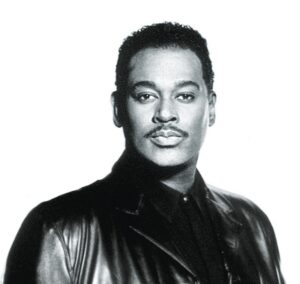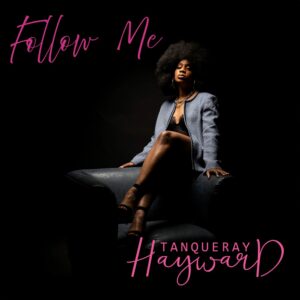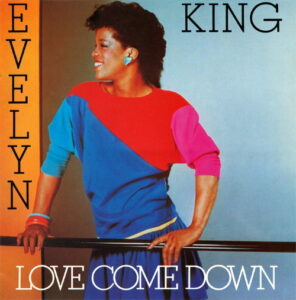This is a reissue of an article we published in 2008 following the 25th anniversary of Michael Jackson’s seminal album, Thriller.
 Thriller is 25. To a generation of boomers, this may seem like a period that has passed in the blink of an eye. And yet in other ways, it has been a long, long quarter century — particularly in the music industry — since the pre-King of Pop began his rule. Michael Jackson’s siesmic LP won a record eight Grammy Awards in 1984, a recognition of both the album’s artistic merit and the tidal wave of popularity it garnered. What the Grammy selection committee didn’t know at the time was that it was also celebrating the high-water mark of "popular" music.
Thriller is 25. To a generation of boomers, this may seem like a period that has passed in the blink of an eye. And yet in other ways, it has been a long, long quarter century — particularly in the music industry — since the pre-King of Pop began his rule. Michael Jackson’s siesmic LP won a record eight Grammy Awards in 1984, a recognition of both the album’s artistic merit and the tidal wave of popularity it garnered. What the Grammy selection committee didn’t know at the time was that it was also celebrating the high-water mark of "popular" music.
Thriller was more than a good album that became the biggest seller of all time. In reconsideration, it was a cultural force majeure that captured black, white, pop, soul, rock, young and old audiences alike. It was a metaphor for the shared American culture.
An album crossing so many boundaries seems foreign – almost quaint – in 2008. "Narrowcasting" dominates the musical landscape, with thousands of specialized music stations carving audiences into groups so small that it has become impossible to have the kind of shared American cultural experience that Michael Jackson created back in the day.
Thriller sold 27 million units in America. Those kinds of numbers are mind-boggling now, and we won’t see anything like that again in our lifetime. To put it in perspective, the biggest selling album of 2007, Josh Groban’s Noel, didn’t even sell 4 million, and most radio listeners never heard a single cut from it. Could you say that about Thriller, Born In The USA, or Purple Rain? Back then it would be tough to find someone who hadn’t heard at least three or four tracks or who couldn’t sing one by heart. They were part of the common language the majority of the country shared via popular radio. So if you liked MJ, radio also led you to the different sounds of Springsteen, Joe Jackson and the Police.
Today, a new CD struggles to attract a focused target group of urban college aged men or 30 year old suburban housewives, but nothing approaches the mass audience of Thriller and its progeny a quarter century ago. We are instead in the age of choice, where my love for classic Philadelphia or Detroit soul vocal groups can be satisfied 24/7 and in an exclusive fashion. Not only can I ignore fringe or temporal acts like Maktub or Arcade Fire, I don’t even have to waste my time on the biggest stars of the era such as Kanye West or Maroon 5. Instead I can focus exclusively on what I already know I like, as I listen to XM in the car on the way home to plug in my iPod.
If music serves a cultural purpose, if there really is a message in the music (good or bad), the big issue is the price we pay for gratifying our insular tastes at all times. While the purveyors of profanity-laced or violent music love to argue that music simply reflects the culture, the true power of music is its ability to shape culture. The 60s and 70s illustrate this point. Music’s power at one end advanced racial equality and changed public sentiment against a no-win war in Southeast Asia. At the other end it healed culture’s open wounds by singing that "Love’s In Need of Love Today" and "You’ve Got A Friend." We understood these together. What would we have lost if Curtis Mayfield or Crosby, Stills, Nash & Young had instead been narrowcast to only their most obvious audiences?
Pop radio, while imperfect (political messengers like Mayfield were often forced to become more opaque to get airplay), was one of the great methods of mass communication during the last century. Even beyond the question of its political effect, popular music served to unify, or at a minimum provide the common language that spanned races, genders and ages.
Since Thriller, and particularly in this decade, the arrival of uberchoice has all but removed this common language (save the occasional novelty song or, perhaps, American Idol). As a country we are left with our shared musical experiences being those in the past. Consequently, talented artists today play to restricted, MBA-defined audiences, with most stuck in a demographic prison from which they will never free themselves. Meanwhile, the 60s, 70s and 80s continue to be our broader culture’s musical reference points.
Look no further than Madison Avenue, where every element of advertising is dissected to appeal to the broadest relevant audience. Do they create multi-million dollar ad campaigns around tracks by 50 Cent or Fall Out Boy? No, because the vast majority of Americans couldn’t identify a single song by either act. So corporate America returns to exhaust the haggard familiar, calling on the same tracks from the Motown catalog or 70s arena rock that we’ve heard for most of our adult lives. It is then your realize sadly: those are the only songs we all know!
Certainly the loss of this shared cultural experience is not limited to music. It pervades all of media, where choice gives us the ability to self-select not only for style but also for substantive content. Do I watch "FOX News" or listen to "Air America" for balanced news or for that which supports my pre-conceived notions?
The long term effect of this fragmentation on American society is the great uncertainty. In the political scene, at least, the short term results have been abysmal, as parochial media have played their role in polarizing "red" and "blue" America, effectively demonizing people of good will with differing opinions. And the increased media stratification will continue a sort of cultural mitosis, splitting us into thousands of mini-empires, each suspicious of those who look, think and act differently.
So the re-release of Thriller is coming at a time when, frankly, the original album’s impact would be impossible to replicate. And while Thriller is arguably not even Jackson’s greatest album (I’d argue that Off The Wall was front to back his finest release), it is a cultural icon, a metaphor for consensus and the broader good. It is also a relic of a transitional time, when our commonality was taken for granted and advancement was equated with additional choices.
Over the next few years when we enter an Eden of unlimited musical choice, we may find that the array of options has become the unexpected societal serpent; one that has robbed us of our shared culture, and sacrificed community at the altar of individuality. Then, when we face a national challenge where commonality would be our greatest asset, we may instead be a nation of strangers longing for the halcyon days of Thriller and other shared experiences, when we had more in common than our individual ability to choose.
Chris Rizik
Publisher, SoulTracks.com
.









